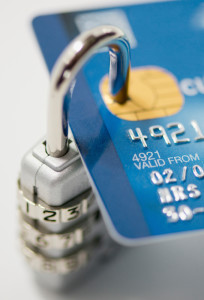 Most of the rest of the world has adopted more secure chip-and-PIN credit cards–which can cause some problems for Americans traveling overseas.
Most of the rest of the world has adopted more secure chip-and-PIN credit cards–which can cause some problems for Americans traveling overseas.
When we were in Italy two years ago, we found our old-school magnetic-stripe cards wouldn’t work in automated kiosks. That included our British Airways card, which had a chip, but no PIN. Without a personal identification number to punch in, it was useless.
Unfortunately, many articles about where to get chip-and-PIN cards in the U.S. make the mistake of thinking chip-and-signature cards are the same thing. They’re so not.
Because we’re going to Europe again soon, I hit up Bill Hardekopf of LowCards.com for a list of U.S. issuers that offer the real deal. The few organizations on this list have many members that travel overseas. And here they are:
United Nations Federal Credit Union.. If you don’t actually work for the UN, you can become a credit union member by joining United Nations Association ($25 membership fee).
USAA. You must be a member of this financial services organization for active-duty military, veterans and their families.
Andrews Air Force Base Federal Credit Union. “You can join by becoming a member of the American Consumer Council which is open to all so essentially is open membership,” Hardekopf said. Membership is $5.
State Department Federal Credit Union. Same deal: you can join by becoming an American Consumer Council member.
Pentagon Federal Credit Union. You can join this credit union is you’re a member of one of a host of associations. If you’re not already a member of one, you can join Voices for America’s Troops for $15.
Or you can just wait, if you don’t have an overseas trip planned. True chip-and-PIN cards should be here by October 2015, when merchants without the terminals to process the cards and banks that have failed to issue them will have to pay for fraud. As Ron Lieber of the New York Times put it, “It’s an elaborate game of chicken, fitting for an industry where the major players spent years embroiled in a lawsuit.” Ultimately, though, more secure cards will benefit banks, merchants and consumers.